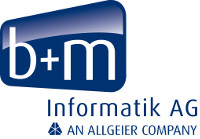Vorwort zum wissenschaftlichen Programm von Andreas Zeller.
Software Analytics
(Donnerstag 27.2.14, 10:30 – 12:10. Hörsaal H. Sitzungsleitung Dirk Riehle)
- Thomas Zimmermann and Nachiappan Nagappan: Software Analytics for Digital Games
- Widura Schwittek and Stefan Eicker: A Study on Third Party Component Reuse in Java Enterprise Open Source Software
- Ingo Scholtes, Marcelo Serrano Zanetti, Claudio Juan Tessone and Frank Schweitzer: Categorizing Bugs with Social Networks: A Case Study on Four Open Source Software Communities
- Walid Maalej and Martin Robillard: Patterns of Knowledge in API Reference Documentation
Quality of Service
(Donnerstag 27.2.14, 10:30 – 12:10. Hörsaal C. Sitzungsleitung Klaus Schmid)
- Franz Brosch, Heiko Koziolek, Barbora Buhnova and Ralf Reussner: Architecture-Based Reliability Prediction with the Palladio Component Model
- Norbert Siegmund, Sergiy Kolesnikov, Christian Kästner, Sven Apel, Don Batory, Marko Rosenmueller and Gunter Saake: Performance Prediction in the Presence of Feature Interactions
- Jons-Tobias Wamhoff, Etienne Rivière, Gilles Muller, Christof Fetzer and Pascal Felber: FastLane: Software Transactional Memory Optimized for Low Numbers of Thread
- Lars Grunske and Ayman Amin: Reactive vs. Proactive Detection of Quality of Service Problems
Verification
(Donnerstag 27.2.14, 10:30 – 12:10. Hörsaal D. Sitzungsleitung Steffen Helke)
- Antonio Filieri, Corina S. Pasareanu and Willem Visser: Reliability Analysis in Symbolic Pathfinder: A brief summary
- Dirk Beyer, Stefan Löwe, Evgeny Novikov, Andreas Stahlbauer and Philipp Wendler: Precision Reuse in CPAchecker
- Christian Hammer: Detecting Deadlock in Programs with Data-Centric Synchronization
- Volodymyr Kuznetsov, Johannes Kinder, Stefan Bucur and George Candea: Efficient State Merging in Symbolic Execution
Comprehension
(Donnerstag 27.2.14, 13:30 – 15:10. Hörsaal H. Sitzungsleitung Stefan Wagner)
- Tobias Roehm, Rebecca Tiarks, Rainer Koschke and Walid Maalej: How Do Professional Developers Comprehend Software?
- Zoya Durdik and Ralf Reussner: On the Appropriate Rationale for Using Design Patterns and Pattern Documentation
- Domenico Bianculli, Carlo Ghezzi, Cesare Pautasso and Patrick Senti: Specification Patterns from Research to Industry: A Case Study in Service-Based Applications
- Dominik Rost, Matthias Naab, Crescencio Lima and Christina Christina von Flach Chavez: Software Architecture Documentation for Developers: A Survey
Evolution
(Donnerstag 27.2.14, 13:30 – 15:10. Hörsaal C. Sitzungsleitung Thomas Ruhroth)
- Vasilios Andrikopoulos: On the (Compatible) Evolution of Services
- Axel Glaser, Tarmo Ploom and Stefan Scheit: Migration von langlaufenden Prozessinstanzen am Beispiel von Credit Suisse
- Timo Kehrer: Generierung konsistenzerhaltender Editierskripte im Kontext der Modellversionierung
- Klaus Schmid: Ein formal fundierter Entscheidungs-Ansatz zur Behandlung von Technical Debt
Synthesis
(Donnerstag 27.2.14, 13:30 – 15:10. Hörsaal D. Sitzungsleitung Bernd Brügge)
- Gerd Kainz, Christian Buckl and Alois Knoll: Tool Support for Integrated Development of Component-based Embedded Systems
- Shahar Maoz, Jan Oliver Ringert and Bernhard Rumpe: Synthesis of Component and Connector Models from Crosscutting Structural Views
- Thomas Thüm: Modular Reasoning for Crosscutting Concerns with Contracts
- Daniel Wonisch, Alexander Schremmer and Heike Wehrheim: Programs from Proofs – Approach and Applications
Modeling
(Freitag 28.2.14, 10:30 – 12:10. Hörsaal G. Sitzungsleitung Martin Glinz)
- Stefan Wagner: Software-Produktqualität modellieren und bewerten: Der Quamoco-Ansatz
- Richard Pohl, Vanessa Stricker and Klaus Pohl: Messung der Strukturellen Komplexität von Feature-Modellen
- Robert Reicherdt and Sabine Glesner: Methods of Model Quality in the Automotive Area
- Lars Hamann, Martin Gogolla and Oliver Hofrichter: Zur Integration von Struktur- und Verhaltensmodellierung mit OCL
Software Architecture and Specification
(Donnerstag 27.2.14, 14:20 – 15:10. Hörsaal G. Sitzungsleitung Wolf Zimmermann)
(gemeinsam mit der Sitzung Innovative Interaktionsformen)
- Aldeida Aleti, Barbora Buhnova, Lars Grunske, Anne Koziolek and Indika Meedeniya: Software Architecture Optimization Methods: A Systematic Literature Review
- Christian Hammer: Flexible Access Control for JavaScript
Static Analysis
(Freitag 28.2.14, 10:30 – 12:10. Hörsaal H. Sitzungsleitung Andreas Zeller)
- Eric Bodden: SPLLIFT — Statically Analyzing Software Product Lines in Minutes Instead of Years
- Marco Trudel, Carlo A. Furia, Martin Nordio and Bertrand Meyer:C nach Eiffel: Automatische Übersetzung und objektorientierte Umstrukturierung von Legacy Quelltext
- Ahmed Bouajjani, Egor Derevenetc and Roland Meyer: Robustness against Relaxed Memory Models
- Sebastian Eder, Maximilian Junker, Elmar Juergens, Benedikt Hauptmann, Rudolf Vaas and Karl-Heinz Prommer: How Much Does Unused Code Matter for Maintenance?
Specification
(Freitag 28.2.14, 13:30 – 15:10. Hörsaal D. Sitzungsleitung Jan Oliver Ringert)
- Jan Jürjens and Kurt Schneider: The SecReq approach: From Security Requirements to Secure Design while Managing Software Evolution
- James J. Hunt, Maarten De Mol and Arend Rensink: Noninvasive regelbasierte Graphtransformation für Java
- Kaituo Li, Christoph Reichenbach, Yannis Smaragdakis and Michal Young: Second-Order Constraints in Dynamic Invariant Inference
Testing
(Freitag 28.2.14, 13:30 – 15:10. Hörsaal H. Sitzungsleitung Roland Meyer)
- Raphael Pham, Leif Singer, Olga Liskin, Fernando Figueira Filho and Kurt Schneider: Revisited: Testing Culture on a Social Coding Site
- Dirk Beyer, Andreas Holzer, Michael Tautschnig and Helmut Veith: Reusing Information in Multi-goal Reachability Analyses
- Lucia Happe, Jens Happe and Alexander Wert: Supporting swift reaction: automatically uncovering performance problems by systematic experiments
- Azadeh Farzan, Andreas Holzer, Niloofar Razavi and Helmut Veith: Concolic Testing of Concurrent Programs

















